The Immigrant Learning Center has helped more than 11,500 immigrant and refugee adults learn English, helping them achieve their goals as students, workers, parents and members of their communities. For our 30th Anniversary, we want to introduce you to just 30 of them. These students represent countless lives that have been positively impacted by the generosity of The ILC’s supporters.
Entrepreneurs:
Immigrants are highly entrepreneurial, and our students are no exceptions. Students at The ILC have started restaurants, nail salons, convenience stores and more.

1. Leon, Russia: One of our earliest students, Leon learned English at The ILC and then embarked on the process of requalifying as a dentist before opening his own practice in Massachusetts. He still provides valuable, much-needed health care to his community.
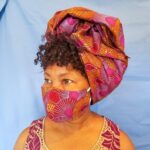
2. Rachel, Tanzania: At the start of the COVID-19 pandemic, when they were most needed, Rachel began sewing masks. She sometimes worked until 2:00 AM to meet the immense demand.
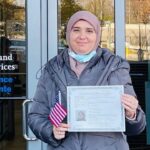
3. Amani, Libya: Thanks to her new English skills, Amani can now communicate with the English-speaking customers of her traditional clothing store.

4. Maria, Brazil: After The ILC classes allowed her to recertify as a massage therapist, Maria created jobs when she opened her own salon.
Health Care Workers:
Immigrants play a vital role in supporting the United States’ understaffed health care system, making up 28.0 percent of physicians and surgeons and 37.9 percent of home health aides despite making up just 13.6 percent of the population. Many of our students choose to enter this field.
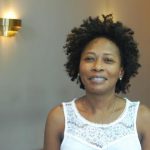
5. Marie, Haiti: After working for years as a certified nursing assistant (CNA), Marie used the English skills she developed at The ILC to pursue a career as a nurse.

6. Quynh-Anh, Vietnam: Improved language skills allowed Quynh-Anh to complete a BS in biology, leading to a career in kidney research and a plan to enroll in medical school.
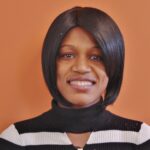
7. Daphne, Haiti: According to her, The ILC helped Daphne “very, very, very much” in her goal to recertify as a nurse in the United States.
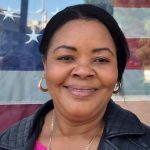
8. Yvelle, Haiti: Learning English improved Yvelle’s ability to help her elderly and disabled clients as a home health aide.
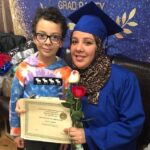
9. Saloua, Morocco: After a difficult divorce, Saloua learned English to become a certified nutritionist so she could support herself and her son.
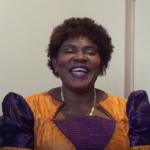
10. Elizabeth, Democratic Republic of Congo: Learning English meant Elizabeth was able to qualify as a CNA, move out of a shelter, and raise children and grandchildren who became nurses, biologists and other health care workers as well.
Pandemic Heroes:
Immigrants have made enormous contributions to all Americans throughout the COVID-19 pandemic. A recent research report from The ILC found that immigrants are overrepresented in many essential fields, including food service, agriculture, transportation and more.

11. Veronica, Colombia: Despite the high risk of reinfection, Veronica returned to her job cleaning a hospital after catching and recovering from COVID-19 in the early days of the pandemic.
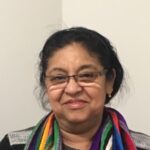
12. Luz, Colombia: Like all new U.S. citizens, Luz took an oath to perform work of “national importance” in a crisis. During the COVID-19 pandemic, she viewed her job sanitizing a hospital to be that kind of work.
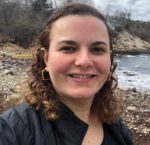
13. Renata, Brazil: Wanting to help her community, Renata actually entered the health care field while the pandemic was underway, signing up to work as a home health aide to work with the most vulnerable populations.
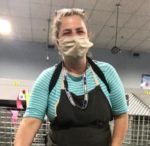
14. Andrea, Brazil, Learning English helped Andrea communicate with her post office coworkers, keeping the mail coming when it was most needed.

15. Diepy, Haiti: To keep everyone fed and safe during the crisis, Diepy sought out work in restaurants.

16 and 17. Juliana and Jonathan, Brazil: In support of their frontline jobs, this couple continued taking classes at The ILC over the phone during COVID shutdown. Juliana worked in a nursing home, an epicenter of COVID-19 infections, while Jonathan learned new food-related vocabulary to improve his work as an Instacart driver.
Professionals:
Many of the students who come to The ILC already have extensive education in their countries of origin. Professors, scientists and doctors mingle with retail workers, truckers and stay-at-home parents in our halls. All of these students have one thing in common: their lack of English ability prevents them from being able to achieve their dreams in the United States. With the English they learn in our classes, and sometimes some guidance from our Next Steps class and career advisors, our students are often able to move on to higher education and vocational training programs that set them on the path to success.
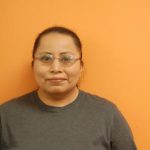
18. Carmen, El Salvador: After managing a salon in El Salvador for more than a decade, Carmen needed English to obtain a cosmetology license in the United States.

19. Ronald, Haiti: Taking the first step toward a career similar to the civil engineering career in Haiti, Ronald successfully applied for a building maintenance training program.
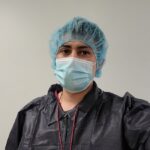
20. Misael, El Salvador: After years of working low-paid jobs, two years of study at The ILC allowed Misael to pursue a degree in biotechnology.

21. Jair, Cape Verde: Although he came to the United States to pursue higher education, Jair was hampered by his lack of English skills. After a boost from The ILC, he successfully obtained a degree from a community college and a master’s degree in cybersecurity from Boston University.
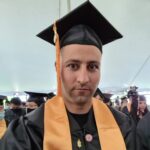
22. Rachid, Algeria: Also interested in pursuing cybersecurity, Rachid graduated with an associate degree and enrolled in a bachelor’s program to give him a leg up in a promising field.
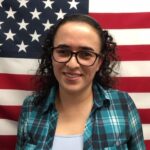
23. Elena, Colombia: After obtaining her citizenship, Elena decided to go to college to become an accountant.
Parents and Caretakers:
Many of The ILC’s students tell us that they’ve immigrated to the United States to give their children a better life, and our classes help them to do so. Studies show that increased English fluency increases the likelihood that a parent in the United States will be involved in their child’s education. Our family literacy workshops are designed for people caring for children, coaching them on attending parent-teacher conferences, understanding report cards and reviewing homework.
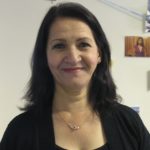
24. Saddiqa, Afghanistan: She had never attended school under the Taliban, and neither had her daughters. Saddiqa entered a classroom for the first time at The ILC and learned how to support her children in their education. Both daughters and her son attended college.

25. Andre, Haiti: Giving up his career in Haiti was the price Andre was willing to pay to come to the United States and give his children a better future. With the English skills he’s developed at The ILC, he’s now supporting both his children and his family in Haiti.

26. Sarah, Uganda: When she found The ILC, Sarah couldn’t read or write in English or in her native language. Now she has a job that supports her and supports her siblings’ and cousins’ educations.
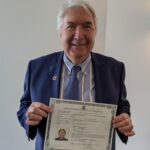
27. Ayhan, Turkey: Another father willing to give up his career, Ayhan started over in the United States for his daughter’s sake and is proud that she is now studying at Worcester Polytechnic Institute.
Volunteers:
The ILC does not ask students for any financial contributions in exchange for classes. Nonetheless, many of our students choose to give back in other ways, whether at The ILC or elsewhere.
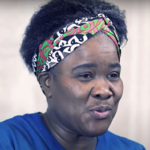
28. Olga, Haiti: After volunteering at the Matahari Women’s Center, a not-for-profit that supports vulnerable women, the Center was so impressed by her work that Olga was elected to its board of directors.
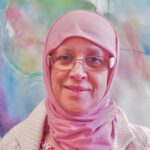
29. Fatiha, Morocco: Despite having no work experience and very limited access to education before coming to the United States, Fatiha learned enough at The ILC to volunteer at a Women, Infants and Children Program.
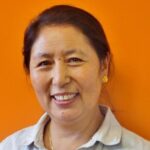
30. Karma, Tibet: Never having set foot in a classroom before coming to The ILC, Karma started in our specialized class for people who lack literacy in their first language and attended classes at The ILC on and off for six years. In the process, she learned to speak English, became literate for the first time, found a job that allowed her to support herself and even became a United States citizen. After, she returned to the citizenship class once a week, this time as a volunteer helping other new Americans chase the dreams she has already achieved.
For each of these students, there are hundreds more new Americans who have benefited from The ILC’s classes. As these stories demonstrate, those benefits often ripple beyond the students themselves. The ILC looks forward to 30 more years of giving immigrants a voice.
